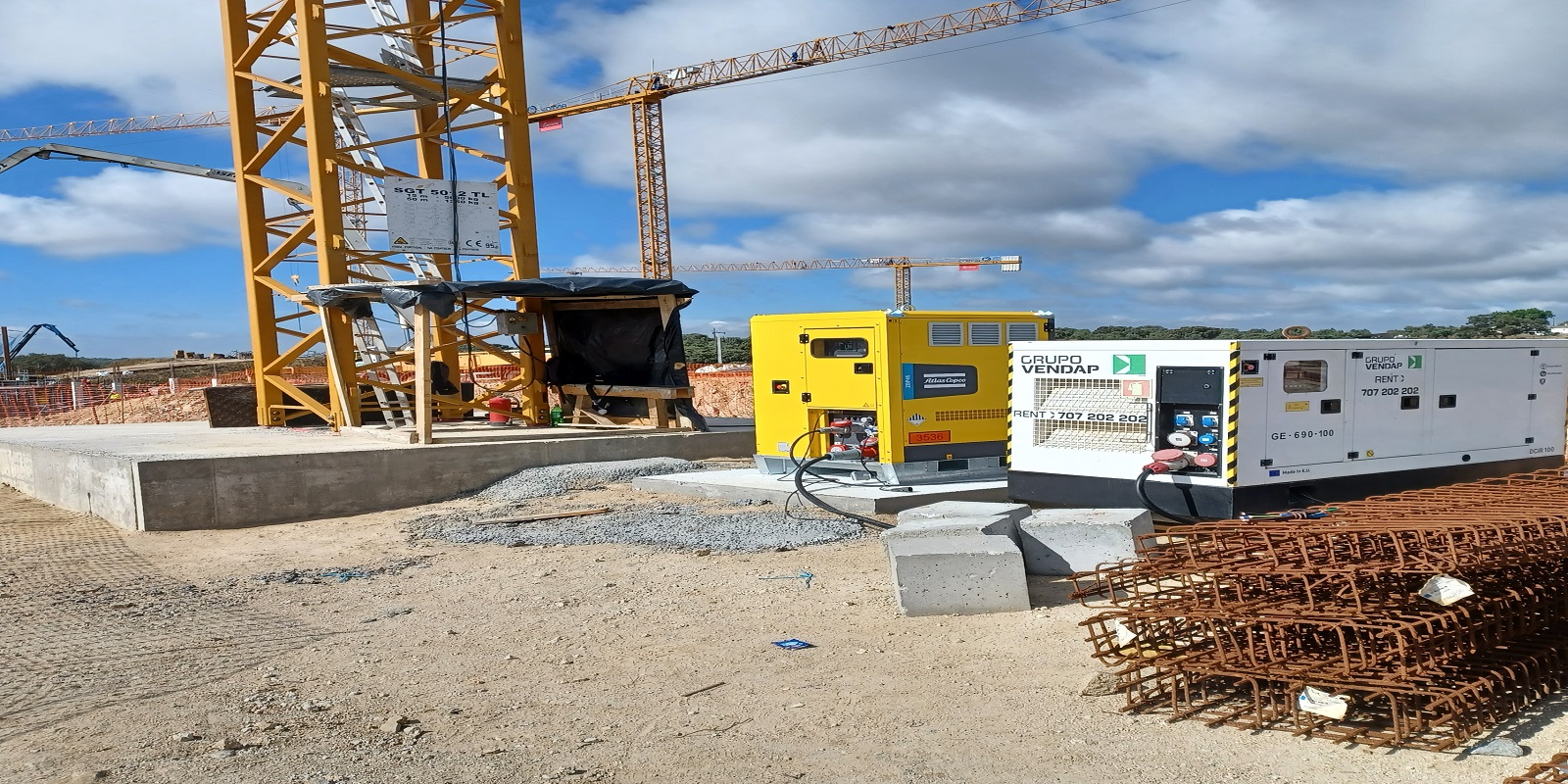- Middle East
- Go to acciona.com
-
The company has incorporated an innovative energy storage system that allows it to power a tower crane while drastically reducing its environmental impact.

ACCIONA has used a new, much more efficient energy storage system in the construction of the Alentejo Hospital in the Évora region of Portugal.
This Atlas Copco ZBP45-45 energy storage system - connected to a 100 kVA generator - has been installed to power a crane tower being used in the construction of the hospital.
This system - in addition to diesel generators- makes it possible to reduce the environmental footprint associated with the crane’s energy consumption, in this case, achieving a significant reduction in fossil fuel (diesel) consumption and associated polluting gas emissions.
The system installed by ACCIONA consists mainly of long-life, low-maintenance lithium-ion batteries that can be charged from different energy sources (grid, renewable sources, generators).
Thanks to this innovative system, at the beginning of the working day, the energy storage provides all the electricity to power the crane's motors, and during the day, they alternate with the electric generator for the necessary recharging time.
As a result, the diesel genset now runs less than 10 hours per week, compared to more than 50 hours per week prior to the installation of this pilot system.
ACCIONA has been able to increase the site's energy efficiency and reduce its environmental impact by reducing daily fuel consumption, CO2 emissions and noise.
This pilot study is part of ACCIONA's Decarbonization Plan, promoted by the company’s Sustainability Department, which encourages the introduction of measures that effectively enable the progressive decarbonization of its projects at an international level.
EFFICIENT RESULTS
Based on the results obtained during the three months that this new system has been in operation, ACCIONA estimates a saving of 5,000 liters of fuel per year to power the tower crane, as well as a reduction in associated operating costs and diesel generator running hours (up to 80% less). As a result, the life cycle of the generators is significantly extended and their maintenance costs and environmental impact are significantly reduced. In this case, the emission of approximately 15 tons of CO2 into the atmosphere per year is avoided.
THE PROJECT
The Alentejo Hospital project by ACCIONA, encompassing a state-of-the-art hospital unit and extensive green spaces in Portugal, presents a compelling model for healthcare infrastructure development in Saudi Arabia. This project mirrors the aspirations of Saudi Arabia's Vision 2030, particularly in advancing healthcare facilities and embracing environmental sustainability. ACCIONA's approach, integrating a heliport and ample parking facilities, showcases their commitment to accessibility and operational efficiency - key considerations for Saudi Arabia's expanding healthcare sector. The emphasis on green urban spaces also aligns with Saudi initiatives to enhance city environments. ACCIONA's expertise and innovative approach in the Alentejo Hospital project exemplify their ability to contribute significantly to Saudi Arabia's healthcare and infrastructure ambitions.